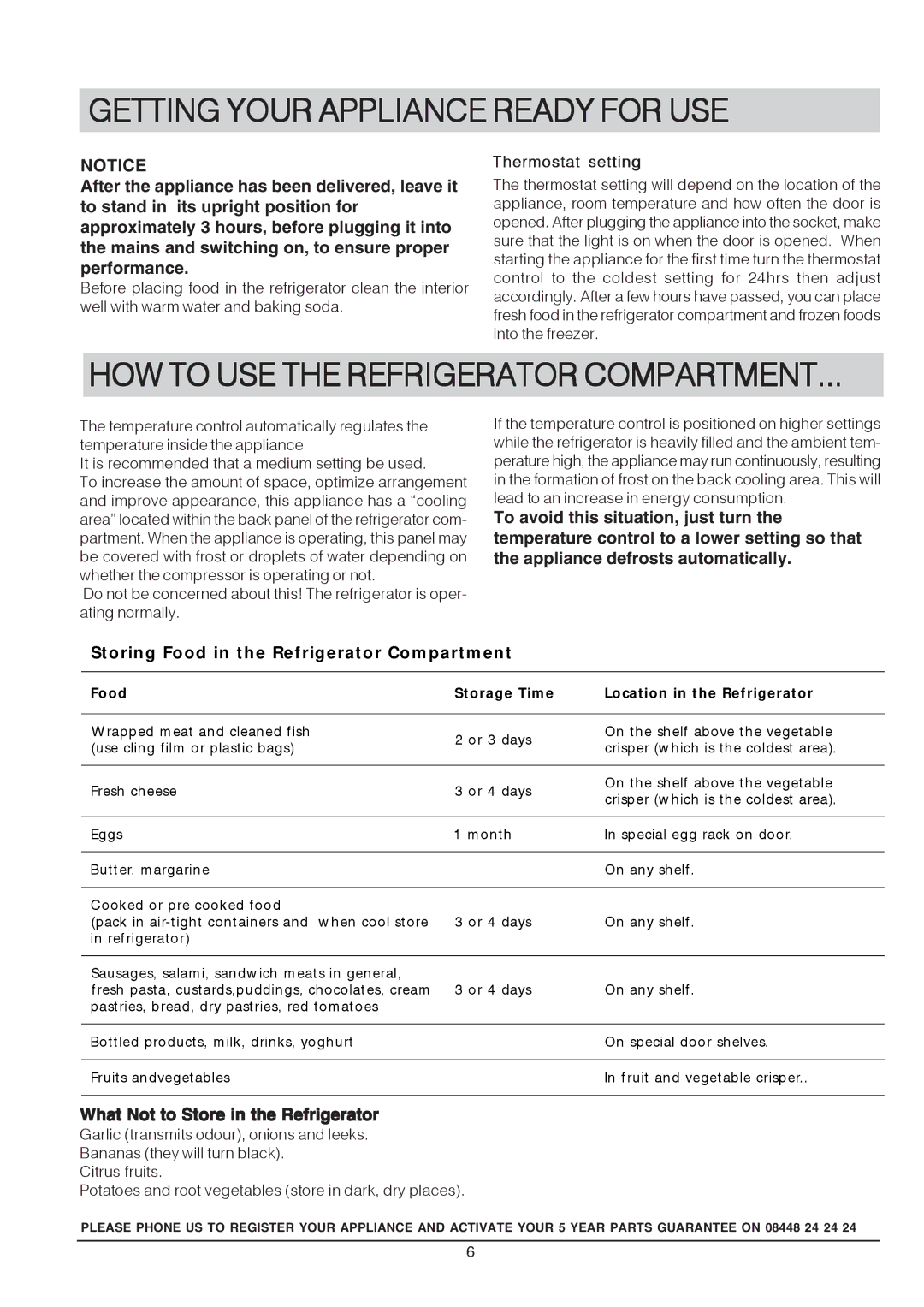RSAAV21P, RSA 21 specifications
The Hotpoint RSA 21 and RSAAV21P models exemplify innovation and efficiency in kitchen appliances, catering to modern consumer needs through advanced features and robust design. These refrigerators are optimized to offer exceptional performance while ensuring food preservation and energy savings.One prominent feature of the Hotpoint RSA 21 is its spacious capacity. With a generous internal layout, it provides ample storage space for groceries, making it easy to organize food items. Its adjustable shelves allow users to customize the interior according to their storage requirements, accommodating everything from tall bottles to frozen goods without hassle.
The RSAAV21P model enhances convenience further with its advanced cooling technologies. This refrigerator employs a Multi Air Flow system that ensures uniform temperature distribution throughout the interior. By circulating cold air evenly, it minimizes temperature fluctuations, keeping food fresher for longer. This innovative system is particularly beneficial for maintaining the quality of perishable items, reducing waste, and saving money.
Energy efficiency is another standout feature of these models. They are designed to meet modern sustainability standards, consuming less power while delivering high performance. The inclusion of an Eco Mode allows users to optimize energy use during less busy times, contributing to reduced electricity bills and a lower carbon footprint.
The Hotpoint RSA 21 and RSAAV21P also boast a user-friendly digital display, which provides real-time information on temperature settings and alerts users to any potential issues. This technology aids users in managing their fridge's performance effectively, ensuring peace of mind regarding food storage conditions.
In addition to their practical attributes, these models come with a sleek and modern design, making them a stylish addition to any kitchen. The stainless-steel finish not only enhances aesthetic appeal but is also easy to clean and maintain, ensuring the appliance looks great over time.
Furthermore, both models include a variety of storage solutions such as door bins, transparent drawers, and dedicated compartments for fruits and vegetables, together enhancing accessibility and organization.
Overall, the Hotpoint RSA 21 and RSAAV21P stand as excellent choices in the landscape of refrigeration appliances, blending modern technology, efficiency, and design to meet the evolving needs of households today.

